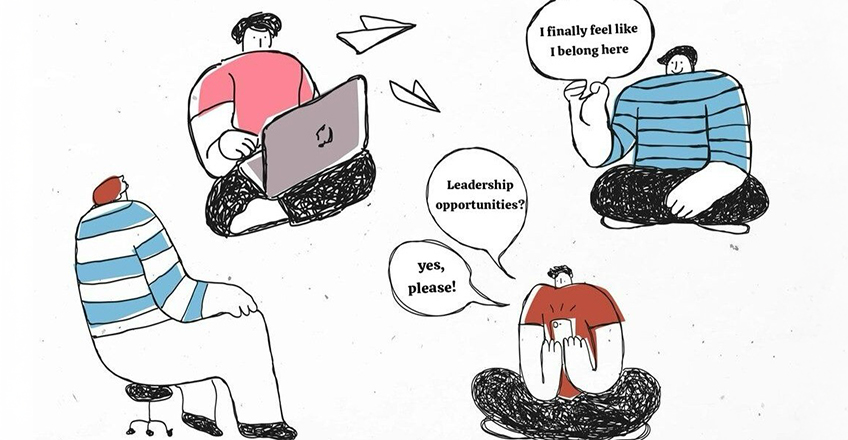Recommended Services
Supported Scripts
WordPress
Hubspot
Joomla
Drupal
Wix
Shopify
Magento
Typeo3
From Quiet Quitting to Quiet Thriving: What Employees Really Want?

What if the secret to retaining your best talent wasn’t about offering more perks or raising paychecks, but about understanding their evolving identities and expectations? In India’s rapidly shifting workforce landscape, talent retention is becoming an exercise in sensitivity, empathy, and adaptability.
Rethinking What the Modern Indian Workforce Wants
Today’s workforce seeks more than just stability or titles—they seek meaning. Gen Z and Millennials prioritize mental well-being, work-life harmony, and roles that align with their personal values. For women and caregivers, leadership opportunities, flexible work arrangements, and family-friendly support systems are essential. Rural talent aspires to equitable opportunities for upskilling and growth, while differently-abled employees need a genuinely inclusive environment with accessible infrastructure.
The triggers for engagement and motivation have shifted. It’s no longer just about doing a job; it’s about feeling seen, valued, and supported. Organizations are listening to these nuanced needs, setting examples with policies that cater to diverse employee groups.
The Shift from Quiet Quitting to Quiet Thriving
Quiet thriving is a cultural shift where employees move beyond mere participation to truly flourishing in their roles. For this, managers play a crucial role. They need to unlearn traditional hierarchies and relearn how to connect with a generation that values dialogue over directives.
Sensitivity, empathy, and adaptability in leadership are key. Work culture, balance, growth opportunities, and communication all carry new meanings for today’s workforce. Employees are not just seeking job security—they’re looking for alignment between their professional and personal values. Without this alignment, frustrations build, and even the most talented teams may fall apart.
Why Intersectionality Matters Now More Than Ever
Intersectionality—acknowledging overlapping identities like gender, geography, and socioeconomic backgrounds—has emerged as a vital lens for understanding employee needs. A rural employee’s aspirations differ from those of a metro-based professional. Transparent promotion policies and culturally sensitive mentoring foster inclusion.
Programs that embrace diversity, like Mahindra Group’s leadership initiatives, not only create belonging but also drive innovation. By nurturing the unique skills and perspectives employees bring, organizations create an environment where individuals thrive—and where success becomes sustainable.

Nurturing a Workforce That Thrives
Investing in upskilling, mental health support, and meaningful flexibility is no longer optional—it’s the foundation of a thriving workplace. Companies like TCS and HCL exemplify how skilling initiatives, combined with a culture of trust, can build teams that are not only productive but also deeply engaged and motivated.
For managers, this requires a mindset shift. It’s about meeting employees where they are, recognizing the possibilities they see, and nurturing their ability to deliver impact at a scale unimaginable before. In doing so, organizations cultivate loyalty, drive growth, and create spaces where employees want to thrive—not just survive.
Can recognizing and celebrating intersectional talent form the cornerstone of an organization’s future-ready success?
The answer lies in how leaders choose to respond—not with slogans or grand gestures, but with the quiet actions that help their people grow and thrive.


